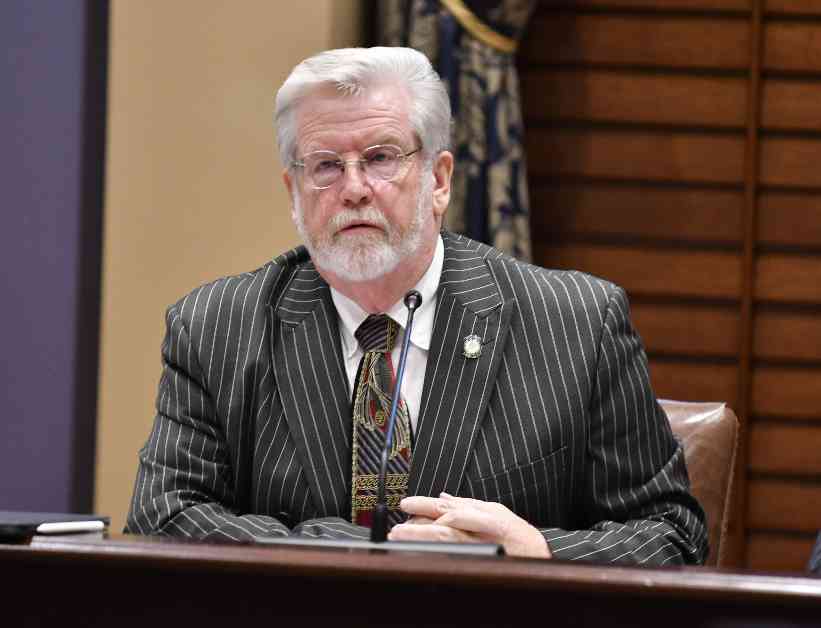Senator Roger Thompson, a Republican from Okemah, has announced his resignation from the Oklahoma State Senate, effective November 1st. This decision is expected to trigger a special election in the state, pending instructions from Governor Kevin Stitt’s office to the State Election Board.
During his tenure, Thompson served as the chair of the appropriations committee, playing a significant role in budget deliberations. However, in the final weeks of the session, Senate President Pro Tem Greg Treat replaced him in a move aimed at enhancing transparency efforts within the Senate.
Treat praised Thompson for his work over the past decade, highlighting his dedication to managing the budget, which resulted in substantial savings and investments in key areas such as education, behavioral health, and infrastructure. Thompson’s leadership in the appropriations committee was acknowledged by Treat, despite their differing views on certain policy proposals, such as cutting the state’s income tax.
In his resignation letter, Thompson expressed gratitude for the opportunity to serve the people of his district and work alongside his colleagues in the Senate. His departure marks the beginning of a new chapter for Senate District 8, as constituents prepare for a special election to fill the vacant seat.
The relationship between Thompson and Treat, as well as their stance on important issues like income tax cuts, reflects the diverse perspectives within the Republican Party in Oklahoma. While Thompson and Treat opposed income tax reduction measures, Governor Stitt and House Speaker Charles McCall supported such initiatives, creating a dynamic political landscape within the state legislature.
As Oklahoma prepares for the upcoming special election, the focus will be on selecting a candidate who can continue the legacy of Senator Roger Thompson and address the pressing needs of the district. The outcome of the election will not only determine the future representation of Senate District 8 but also shape the policy direction of the state as a whole.


